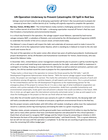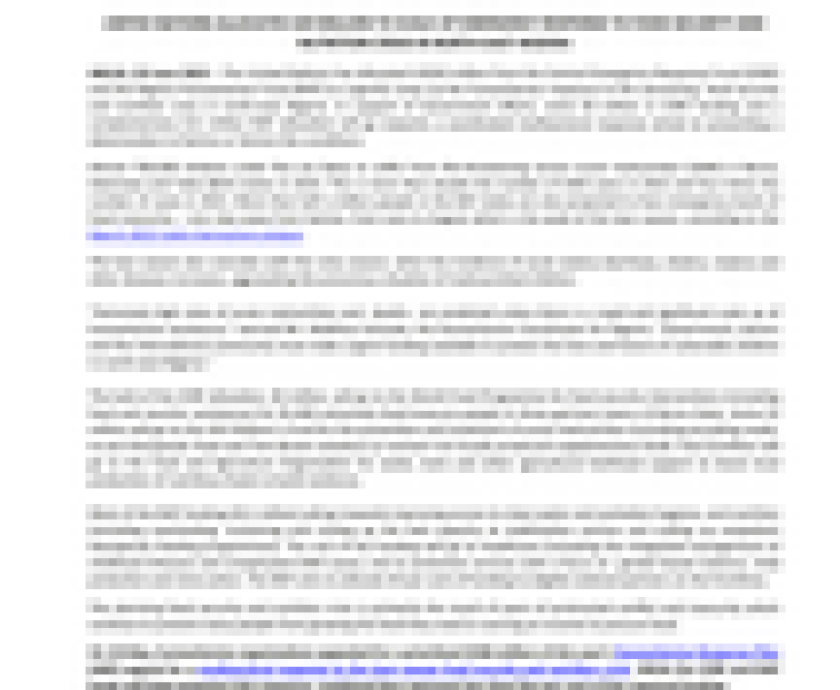Click to expand Image
Liu Xiaobo addresses the crowd at Tiananmen Square in Beijing, May 1, 1989.
© 1989 Getty Images/ David Turnley
(New York) – Chinese authorities are increasing efforts to erase memories of the June 4, 1989, Tiananmen Square Massacre in Beijing while people across the globe commemorate the event, Human Rights Watch said today.
The Chinese government should acknowledge responsibility for the mass killing of pro-democracy demonstrators and provide redress for victims and family members.
“The Chinese government continues to evade accountability for the decades-old Tiananmen Massacre, which has emboldened its arbitrary detention of millions, its severe censorship and surveillance, and its efforts to undermine rights internationally,” said Yaqiu Wang, senior China researcher at Human Rights Watch. “Still, people across China and the globe continue to risk their safety and freedom by speaking out and demanding their rights.”
Most recently, in late 2022, thousands of people across China took to the streets to protest the government’s draconian Covid-19 measures and the Chinese Communist Party’s authoritarian rule. In response, the government abruptly lifted most of the pandemic restrictions, but detained dozens of protesters.
As in previous years, in the weeks before the Tiananmen anniversary, the authorities have preempted commemorations. They restricted the movement and communication of activists and members of the Tiananmen Mothers, a group of relatives of victims of the 1989 massacre. On May 27, 2023, the authorities in Hunan province detained activist Chen Siming after he refused to delete his tweet commemorating Tiananmen. The police in Shandong summoned activist Qi Chonghuai and warned him not to participate in commemoration activities.
The Tiananmen Mothers released a public statement reiterating their call for “truth, compensation and accountability” about the massacre.
In response to commemoration activities in 2022, the authorities in Hangzhou detained Xu Guang, an activist and participant in the 1989 pro-democracy movement, shortly after he went to a local police station to demand the Chinese government acknowledge the massacre. In April, a court tried him for “picking quarrels and provoking trouble.” The verdict has not been announced.
In July 2022, the authorities detained Xu’s friend, Chen Ziliang, 55, a member of the banned Democracy Party, in relation to Xu’s investigation. In December, Chen, who had suffered a stroke prior to his detention, died in custody after being denied adequate medical care. The authorities warned Chen’s family not to speak about his death publicly. In Guangdong, the authorities forcibly disappeared activist Ye Hongwen, shortly after he posted a photo of himself on Twitter commemorating Tiananmen in a public square in 2022. He was later released.
In March, Jiang Yanyong, a prominent doctor known for exposing the Chinese government’s coverup of the SARS epidemic in 2003, died in Beijing. Jiang, who witnessed the military’s June 1989 killings as a surgeon in a military hospital in Beijing, had called for China’s leaders to acknowledge the massacre, for which he was first detained and then periodically subjected to monitoring, harassment, and house arrest. The authorities allowed only a few family members and students to attend his funeral.
In Hong Kong, in February, a court sentenced three organizers of the now-banned annual Tiananmen vigil to four-and-a-half months in prison for failing to provide the authorities with information on the organizing group. Among them, Chow Hang-tung had already been serving 15-month and 12-month sentences for participating in the 2021 and 2020 vigils respectively. On June 4, 2022, despite the ban and heavy police presence, some people still went to Victoria Park, the site of the vigil, and held up electronic candles and phone flashlights, or sang songs of remembrance. Police arrested 15 participants for obstructing officers and for other offenses.
In May, the Hong Kong police seized the “Pillar of Shame,” a large sculpture commemorating the massacre victims, from a facility run by the University of Hong Kong. University authorities had removed the sculpture in 2021 from the campus. Its Danish sculptor, Jens Galschiø, made repeated attempts to retrieve the piece, but the university ignored them. Also in May, the Hong Kong authorities removed at least nine titles about the Tiananmen Square massacre from the city’s public libraries. That month the Catholic Diocese of Hong Kong announced that it would not hold a Tiananmen commemorative mass that year; the church cancelled its 2022 mass due to concerns over the National Security Law.
In contrast to the enforced silence inside China and Hong Kong, people around the world, including in Paris, Boston, Sydney, and Osaka, held public discussions, exhibitions, gatherings, and published essays to commemorate the Tiananmen crackdown. The events were organized by known diaspora pro-democracy groups or anonymous social media accounts. Some dressed up in Xi Jinping costumes while others wore black. Many covered their faces in fear of retaliation by Chinese authorities against them or their families in China. Many young people, born after the massacre, participated in a rally in the Los Angeles area.
The Chinese government has long ignored domestic and international calls for justice for the Tiananmen Massacre, and some of the sanctions that the European Union and US imposed in response have over the years been weakened or evaded. The lack of a sustained, coordinated, and international response to the massacre and ensuing crackdown is one factor in Beijing’s increasingly brazen human rights violations, Human Rights Watch said. These include the tightened control over civil society, media, and the internet, mass detention of an estimated one million Turkic Muslims in Xinjiang, and the direct imposition of national security legislation in Hong Kong that suppresses fundamental freedoms.
“No matter how hard President Xi Jinping’s government tries, it won’t succeed in erasing the memory of Tiananmen from the minds of China’s people,” Wang said. “More and more young people in China are joining together to demand truth and accountability.”
The Tiananmen Massacre was precipitated by the peaceful gatherings of students, workers, and others in Beijing’s Tiananmen Square and other Chinese cities in April 1989, calling for freedom of expression, accountability, and an end to corruption. The government responded to the intensifying protests in late May 1989 by declaring martial law.
On June 3 and 4, People’s Liberation Army (PLA) soldiers fired upon and killed untold numbers of peaceful protesters and bystanders. In Beijing, some citizens attacked army convoys and burned vehicles in response to the military’s violence.
Following the killings, the government carried out a nationwide crackdown and arrested thousands of people on “counter-revolution” and other criminal charges, including arson and disrupting social order.
The government has never accepted responsibility for the massacre or held any officials legally accountable for the killings. It has been unwilling to investigate the events or release data on those who were killed, injured, forcibly disappeared, or imprisoned. Tiananmen Mothers documented the details of 202 people who were killed during the suppression of the movement in Beijing and other cities.
As a party to a number of international human rights treaties and as a current member of the United Nations Human Rights Council, which obligates China to “uphold the highest standards of human rights,” the Chinese government should urgently take the following steps with respect to the Tiananmen Massacre:
Respect the rights to freedom of expression, association, and peaceful assembly, and cease the harassment and arbitrary detention of individuals who challenge the official account of the Tiananmen Massacre;
Meet with and apologize to members of the Tiananmen Mothers, publish the names of all who died, and appropriately compensate the victims’ families;
Permit an independent public inquiry into Tiananmen and its aftermath, and promptly publish the findings and conclusions;
Allow the unimpeded return of Chinese citizens, exiled due to their connections to the events of 1989; and
Investigate all government and military officials who planned or ordered the unlawful use of lethal force against demonstrators, and appropriately prosecute them.





